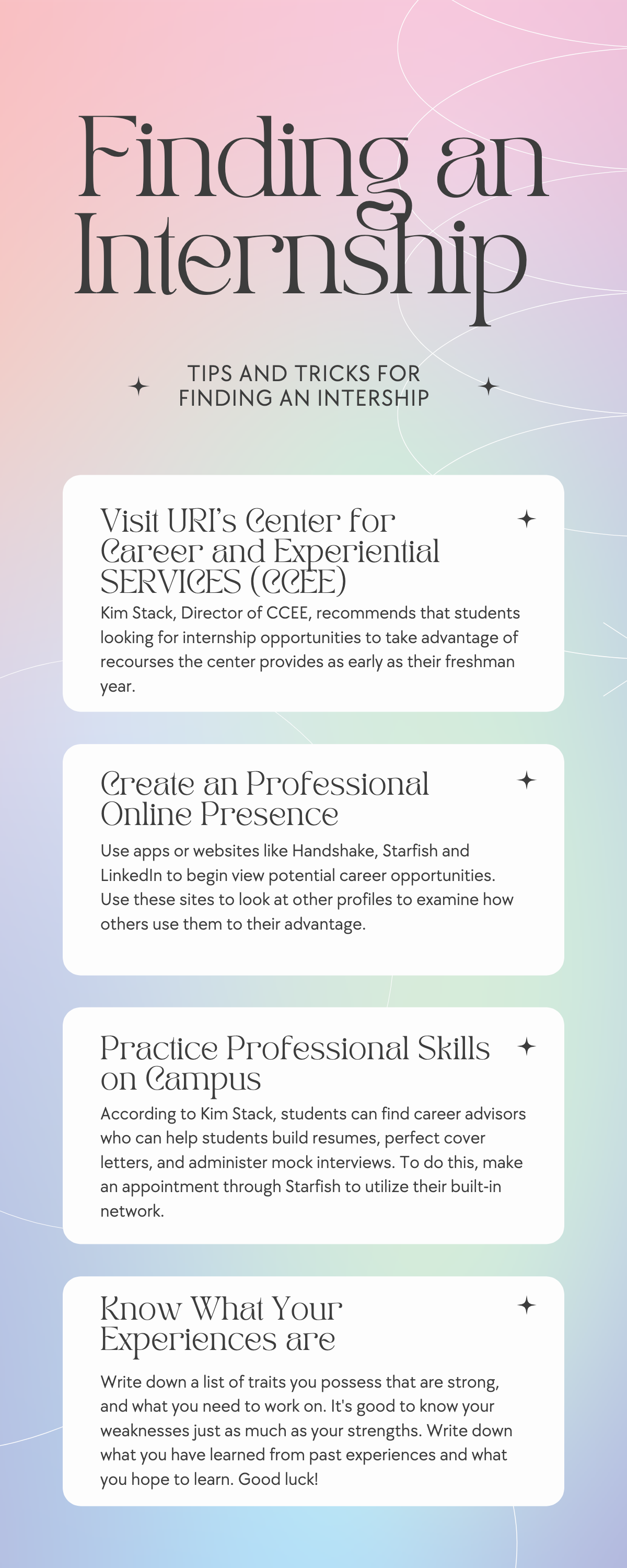Apps like Handshake, Starfish and LinkedIn can help students network and find internship possibilities. PHOTO CREDIT: Maddie Bataille | Photo Editor
As the semester comes to an end and students start looking for summer internships, the University of Rhode Island’s Center for Career and Experiential Education (CCEE) has made lots of resources available to help guide students through the internship process.
Kim Stack, director of CCEE, encouraged students to utilize the resources the center has to offer as early as their first year. According to Stack, students should make a profile on Handshake, Starfish, and LinkedIn to start viewing potential opportunities.
The next step in the process would be to reach out to your career advisor who can be found through Starfish. They will be able to help with creating a resume, mock interviews, wiring a cover letter and interview skills, according to Stack.
Stack encouraged students to utilize their built-in network.
“You can find opportunities through your network, which does not have to be a professional network,” Stack said. “This can include friends, family members or anyone you know who works in the industry that interests you.”
According to Stack, it is also important to represent yourself professionally on all social media, not just professional networking platforms. She urged students to spend time crafting their personal statements on LinkedIn and taking down any posts that could potentially be skewed as unprofessional.
Lucas DeWitt, a graduate assistant at the Office of Student Involvement, suggested going through the internship modules on the CCEE website.
“Go through the modules whether it is resumes or in this case internships because it is really helpful to start getting a foundation,” DeWitt said.
The University also offers an internship course in the fall, spring and summer semesters under ITR302 and ITR304 which are taken together in order for students to get class credit and field credit. The course is a combination of three credits of graded coursework that accompanies additional field experience which can be in any major.
Within the physical class time, students will engage in workshops and discussion posts about career-related topics including building professionalism and dealing with ethical issues. They can then take those skills into their field to gain hands-on experience.
DeWitt emphasized that any experience in clubs and organizations on campus can be helpful when looking for an internship.
“I recommend writing out any experiences you may have when you first sit down to look for an internship,” DeWitt said. “This will help you find skills you excel at and narrow down what you may be interested in.”
This activity can aid students in finding where their strengths are and where they have areas to learn and grow from the company they are applying to, according to DeWitt.
Stack mentioned the easiest way to get initial experience is to get an on-campus job or join a club that sounds interesting. Saying yes to any opportunity that comes along can be very helpful in developing interests and skills.
“Some organizations could really use support and help right now,” Stack said. “It’s something else to add to your resume and it can be another skill set that helps to launch you into that first true internship that’s going to be really meaningful and impactful towards the career goals that you have.”
According to DeWitt, each experience you gain in college helps build different sets of skills that are transferable.
All information regarding internships and resources available to students at URI can be found on the CCEE website.

